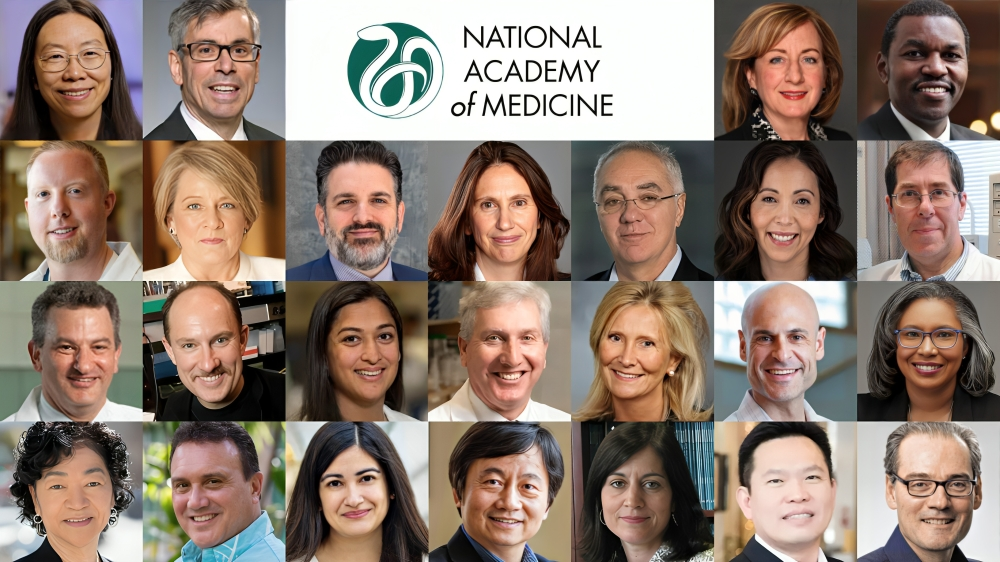During its annual meeting National Academy of Medicine announced the election of 90 regular members and 10 international members.
Election to the Academy is considered one of the highest honors in the fields of health and medicine and recognizes individuals who have demonstrated outstanding professional achievement and commitment to service.
The National Academy of Medicine (NAM), originally founded as the Institute of Medicine (IOM) in 1970, is one of the three academies that comprise the National Academies of Sciences, Engineering, and Medicine in the United States. With over 2,400 members elected by their peers for their outstanding achievements, NAM plays a crucial role in guiding efforts to improve health and healthcare.
Operating under the 1863 Congressional charter of the National Academy of Sciences, NAM is a private, nonprofit institution that provides objective advice on matters related to science, technology, and health. Its members are dedicated to volunteer service, contributing their expertise to advance the mission of NAM and the broader National Academies.
REGULAR MEMBERS
David Dranove
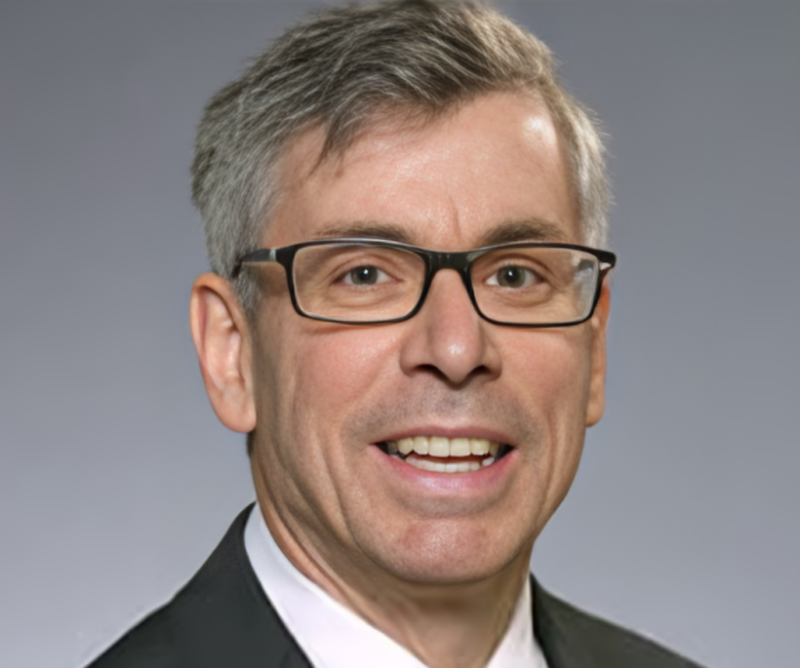
David Dranove, PhD, Walter McNerney Distinguished Professor of Health Industry Management, Kellogg School of Management, Northwestern University, Evanston, Ill. For foundational insights on how health care markets work and how they affect patients generally, vulnerable populations, health care delivery, costs, and health outcomes. His work has changed scholarly and public understanding of health care markets and shaped policies toward hospitals, health insurance, physician practices, and pharmaceuticals.
Patricia C. Dykes
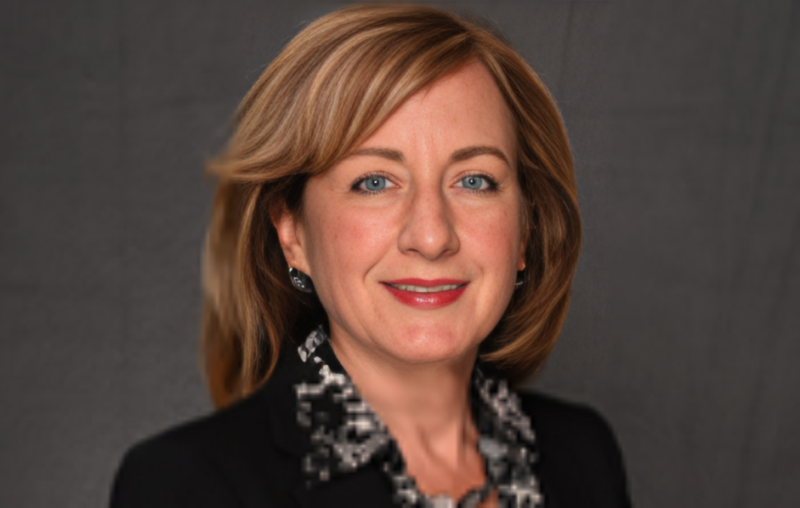
Patricia C. Dykes, PhD, MA, RN, research program director, Center for Patient Safety, Research, and Practice, Brigham and Women’s Hospital; and professor of medicine, Harvard Medical School, Boston. For being an internationally recognized nurse scientist and biomedical informatician who has developed, integrated into practice, and broadly disseminated innovative, cost-effective health information technology tools that engage patients and families in fall prevention, markedly reducing patient falls — the leading cause of injury-related death for those 65 and older.
Peter Joseph Embí
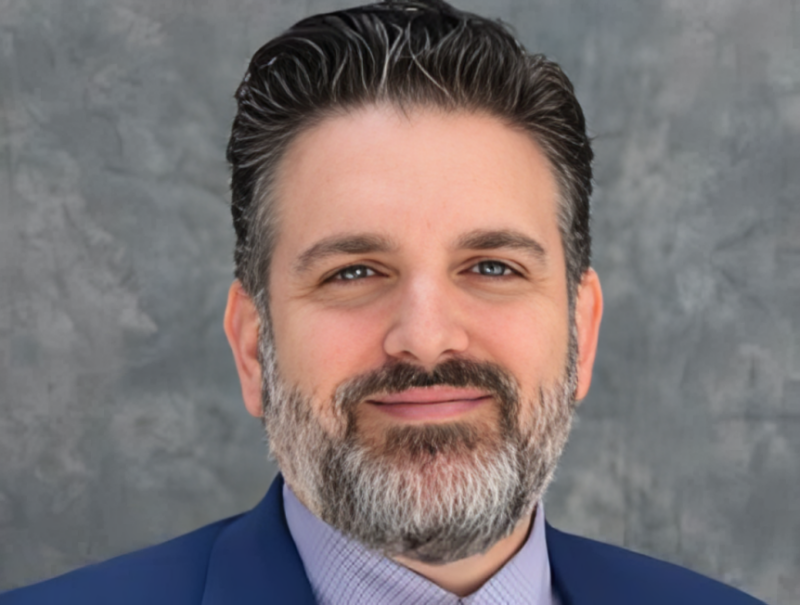
Peter Joseph Embí, MD, MS, FACP, FACMI, FIAHSI, professor of biomedical informatics and medicine and chair, department of biomedical informatics, Vanderbilt University Medical Center, Nashville, Tenn. For being a pioneering physician-scientist whose career bridges health care, research, public health, and biomedical informatics. His thought leadership and research led to the field of clinical research informatics, real-world evidence generation, the safe and effective use of AI in health care, and data-driven learning health systems that improve health and care.
Alicia Fernandez
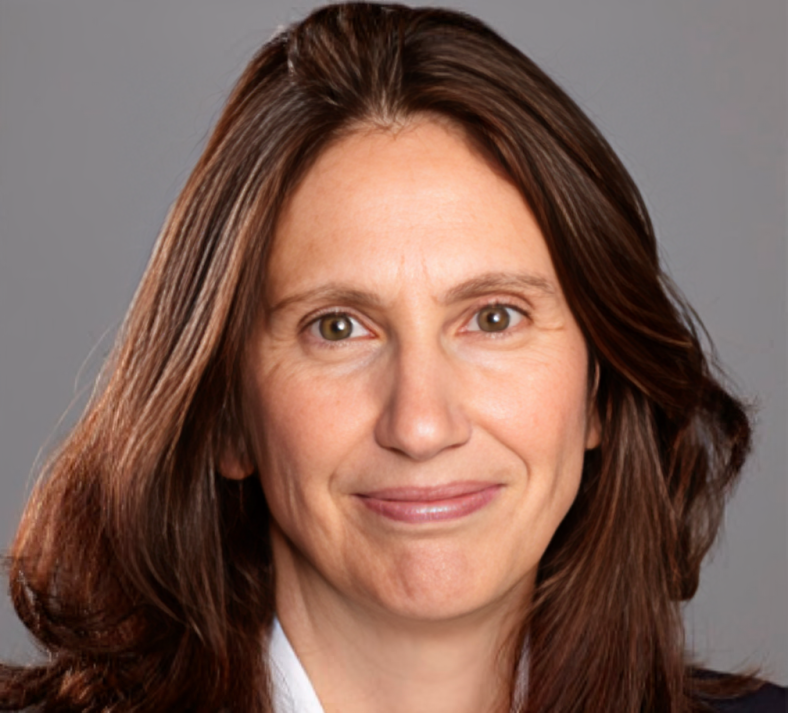
Alicia Fernandez, MD, professor of medicine, University of California, San Francisco. For seminal health services research elucidating the impact of language and literacy barriers on patient outcomes and experience of care that highlights the challenges facing millions with limited English proficiency, and for effectively championing workforce diversity and health equity through high-impact research and program development.
Erol Fikrig
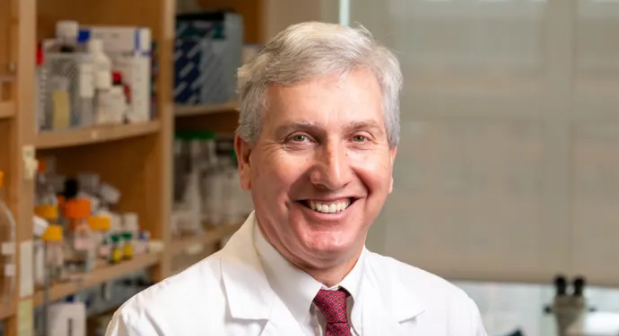
Erol Fikrig, M.D., Waldemar Von Zedtwitz Professor of Medicine and professor of microbial pathogenesis and epidemiology; and section chief, infectious disease, department of internal medicine, Yale School of Medicine, New Haven, Conn. For mechanistic studies that led to an FDA-approved outer surface protein A-based human Lyme disease vaccine. He elucidated how arthropod-transmitted pathogens use vector proteins to infect mammals. These efforts led to an experimental vaccine to induce host resistance to tick bites, and therefore prevent Lyme disease — a new strategy for combatting infections.
Silvia C. Formenti
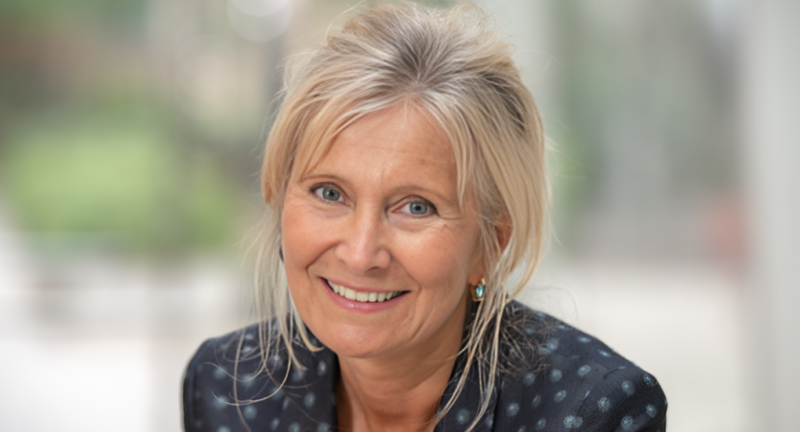
Silvia C. Formenti, MD, FAACR, FACR, FASTRO, professor of radiation oncology and medicine and chair, department of radiation oncology, Weil Cornell Medicine; and radiation oncologist-in-chief, New York-Presbyterian Hospital, New York City. For introducing a paradigm shift in our understanding of focal radiotherapy by demonstrating that it can convert the tumor into an “in situ,” individualized vaccine, conferring systemic immunity. Her work has opened a new field in radiation biology.
Monika Kumari Goyal
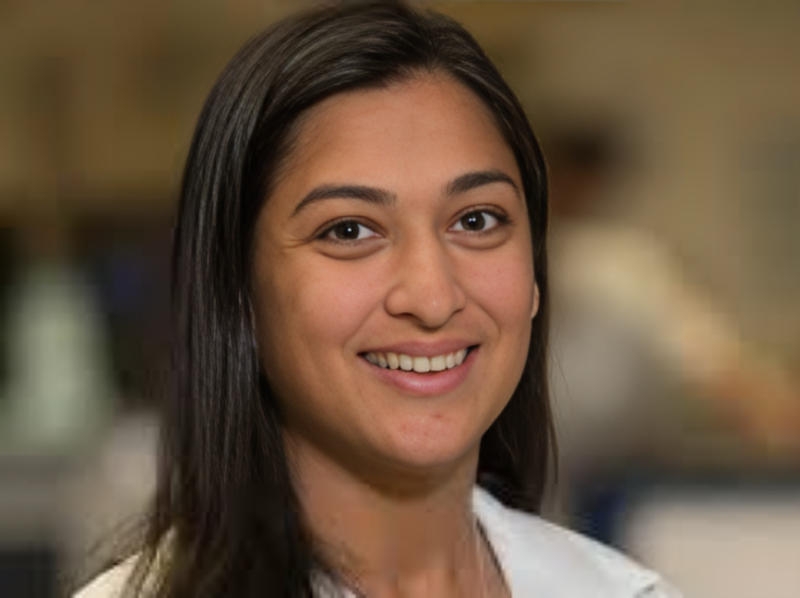
Monika Kumari Goyal, MD, MSCE, professor of pediatrics and emergency medicine, George Washington University; and endowed chair for Women in Science and Health and co-director, Center for Translational Research, Children’s National Hospital, Washington, D.C. For being a national leader in research in pediatric firearm injury prevention. Her research has shed a spotlight on the burden of firearm violence on child health. She is also a leading pediatric equity scientist, developing interventions that have led to mitigation of health care disparities.
Marcia Carmen Haigis
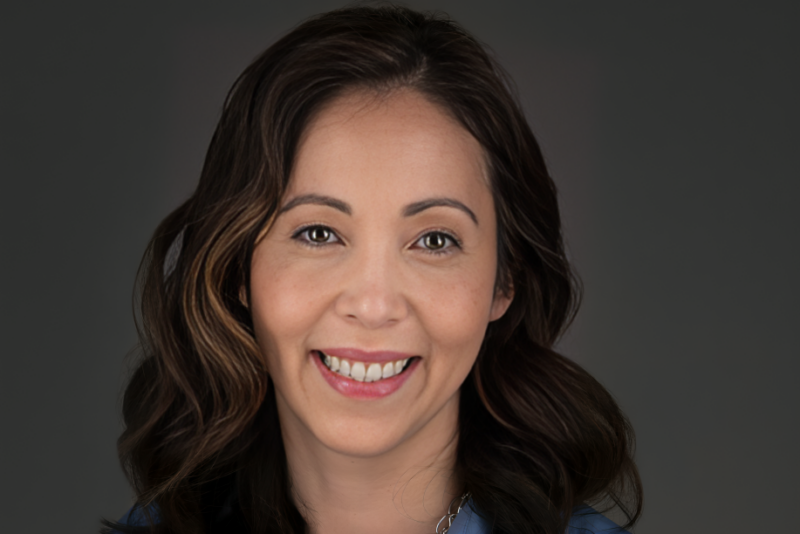
Marcia Carmen Haigis, PhD, professor, department of cell biology, Harvard Medical School, Boston. For leadership and pioneering studies in cellular metabolism, elucidating how metabolites contribute to normal physiology, aging, cancer, and anti-tumor immune control. Her discoveries informed how diet and age alter metabolite interactions, leading to disease.
Scott David Halpern
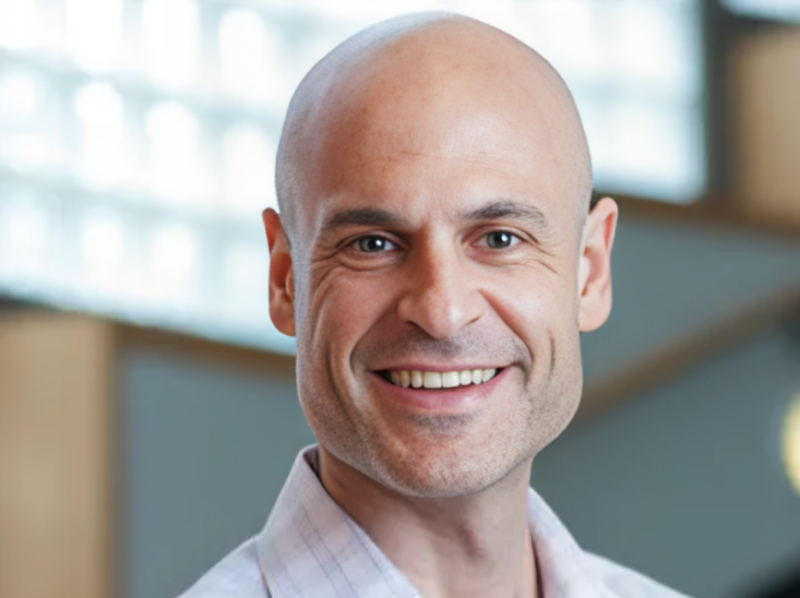
Scott David Halpern, MD, PhD, MBioethics, John M. Eisenberg Professor in Medicine, professor of medical ethics and health policy and of epidemiology, and director, Palliative and Advanced Illness Research Center, University of Pennsylvania Perelman School of Medicine, Philadelphia. For making seminal contributions to improving care near the end of life by combining conceptual and empirical work. Through trenchant ethical analyses and leadership of the field’s largest clinical trials, he has challenged old paradigms of serious illness decision-making and demonstrated how low-cost, scalable interventions can improve care quality and outcomes.
Joseph Heitman
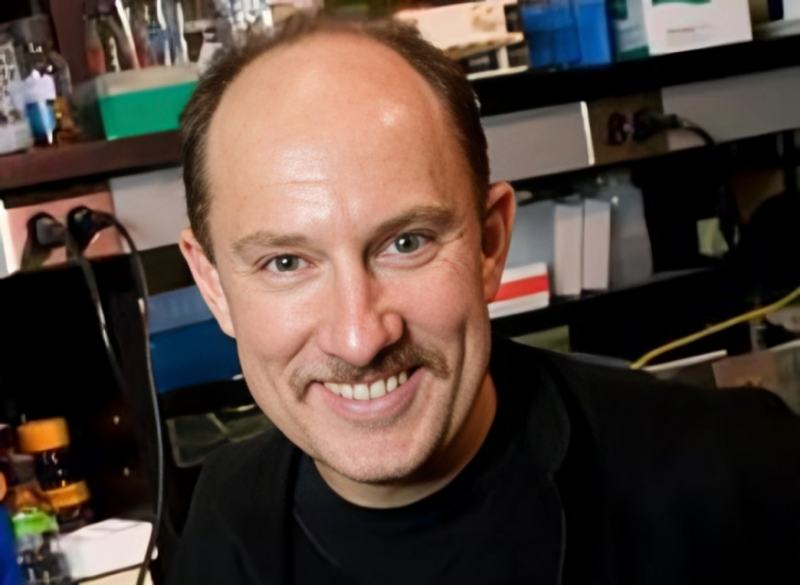
Joseph Heitman, MD, PhD, James B. Duke Professor and chair, department of molecular genetics and microbiology, Duke University School of Medicine, Durham, N.C. For pioneering yeast chemical genetics approaches to discover FKBP12 and TOR as targets of the immunosuppressive chemotherapeutic drug rapamycin widely used in transplant, cardiology, and oncology. He discovered unisexual reproduction and roles in evolution and pathogenesis of eukaryotic microbes illuminating impact on diversity, outbreaks, and drug resistance.
Sally Lynn Hodder
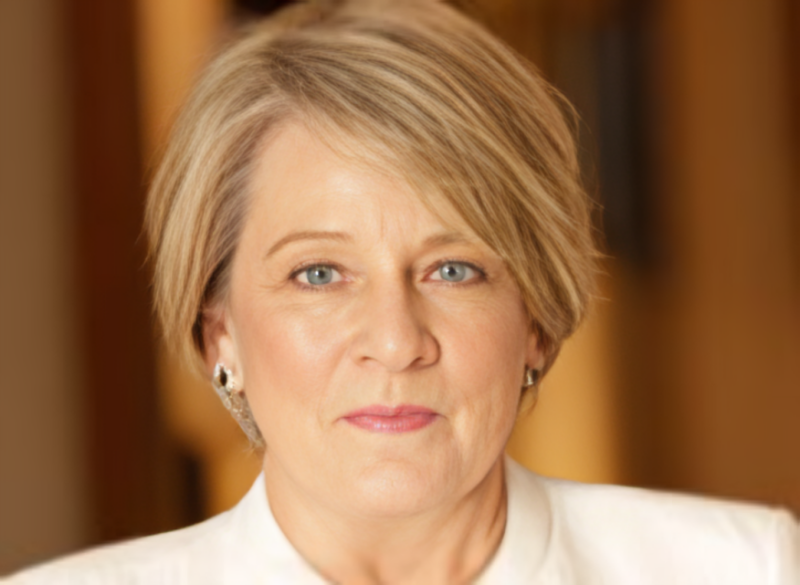
Sally Lynn Hodder, MD, FIDSA, associate vice president of clinical and translational research, professor of medicine, and preeminent scholar chair, School of Medicine, West Virginia University Health Sciences, Morgantown. For accomplishments as an infectious diseases physician and researcher. She is a leader in the design and conduct of clinical trials, particularly among underserved rural and underrepresented populations. She is an expert in HIV treatment and prevention, rural health, addiction research, mentorship of young investigators, and engagement of community in research.
David Huang
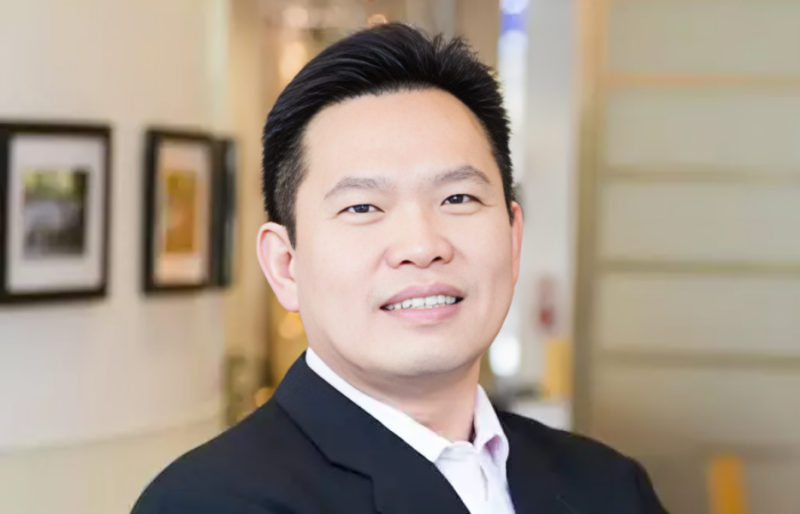
David Huang, MD, PhD, Wold Family Endowed Chair in Ophthalmic Imaging, associate director, and director of research, Casey Eye Institute; and professor of ophthalmology and biomedical engineering, Oregon Health & Science University, Portland. For co-inventing optical coherence tomography (OCT), which has transformed the diagnosis and treatment of eye diseases and the studies of cardiovascular, neurological, and neoplastic diseases. He developed methods to use OCT and OCT angiography in glaucoma, diabetic retinopathy, and macular degeneration, the leading causes of blindness.
Shawna Veleura Hudson
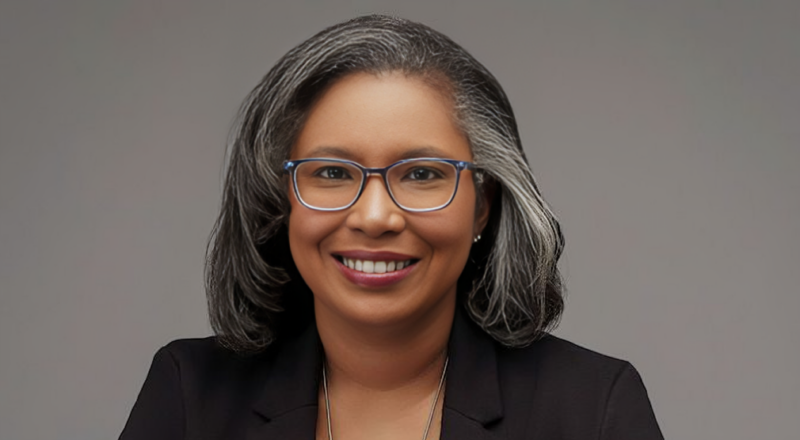
Shawna Veleura Hudson, PhD, vice chancellor for dissemination and implementation science, Rutgers Health, and professor of family medicine and community health, Robert Wood Johnson Medical School, Rutgers University, New Brunswick, N.J. For seminal work to address vital U.S. health system implementation challenges for vulnerable populations. Her research shapes policy and practice to integrate care of cancer and other chronic illnesses for patients and families in the context of their communities during the critical transitions between specialty and primary care, and long-term cancer survivorship
Nola M. Hylton
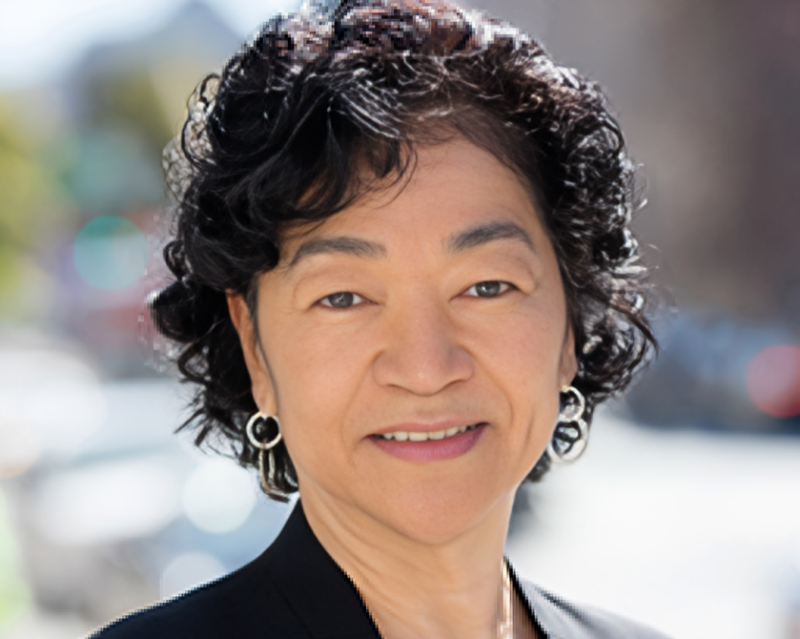
Nola M. Hylton, PhD, professor of radiology and biomedical imaging, University of California, San Francisco. For the earliest development of breast MRI technology, the modern quantitative MRI techniques for breast cancer diagnosis and therapy guidance through development of MRI industrywide NIST-supported standards; leadership of multiple national network multicenter NCI trials; and development of globally commercialized (Hologic) software, improving the health of millions of women globally.
Reshma Jagsi
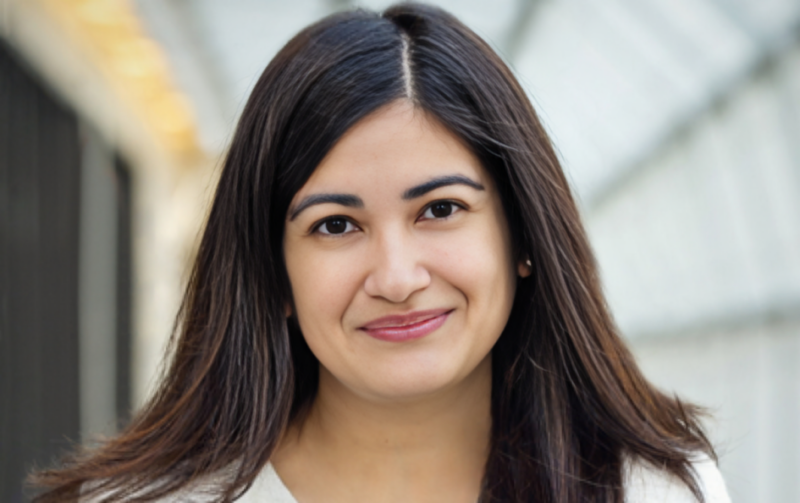
Reshma Jagsi, MD, DPhil, Lawrence W. Davis Professor and chair, department of radiation oncology, Emory University School of Medicine, Atlanta. For pioneering empirical research that has identified targetable drivers of disparities in cancer outcomes and within the medical profession, particularly for women. Her work to develop and evaluate innovative interventions to promote equity has established new areas of investigation in oncology and prompted policy changes by institutions, funders, and professional societies.
Yishi Jin
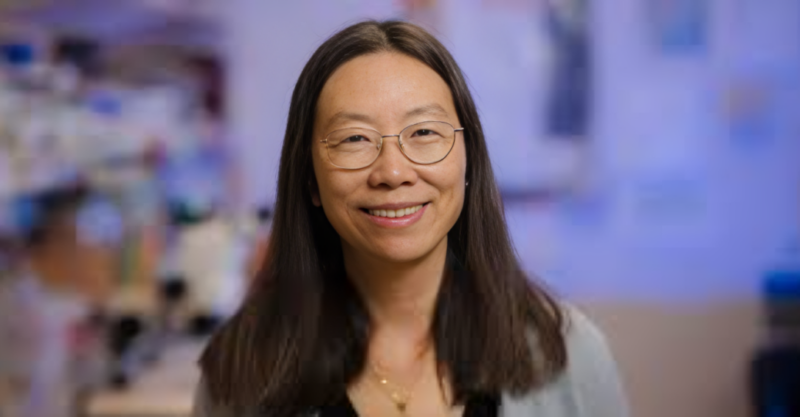
Yishi Jin, PhD, professor, department of neurobiology, School of Biological Sciences, University of California, San Diego, La Jolla. For groundbreaking discoveries on phylogenetically conserved mechanisms that drive synapse formation and that underlie central nervous system regeneration, providing fundamental knowledge and molecular targets which inform therapeutic strategies for ameliorating the effects of neuronal injury and degeneration.
Peter Anthony Jones
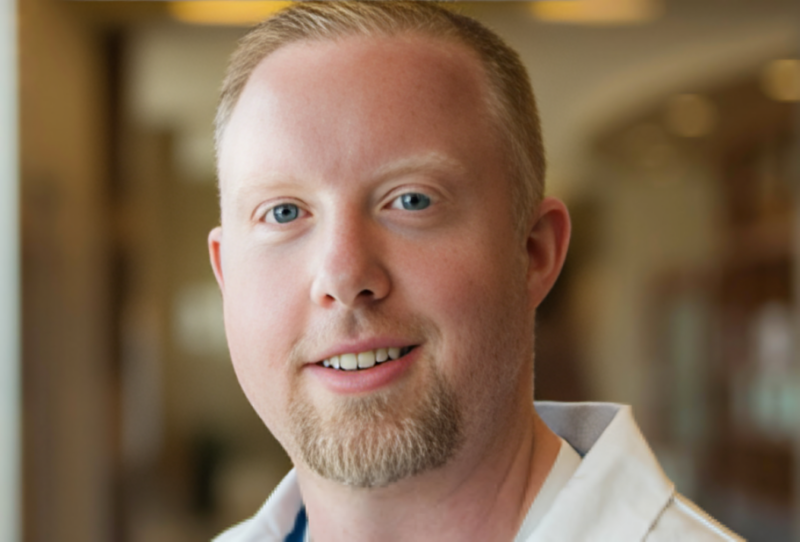
Peter Anthony Jones, PhD, DSc (hon), president of the graduate school; chief scientific officer; professor, department of epigenetics; and co-leader, Stand Up to Cancer Epigenetics Dream Team; Van Andel Institute, Grand Rapids, Mich. For mechanistically linking DNA methylation gene expression and differentiation. His seminal discovery that 5 azanucleosides could change immortalized embryonic cells into muscle cells opened the field of epigenetics, was an early example of cellular reprogramming, and led to FDA approval of DNA methyltransferase inhibitors (DNMTis) for treatment of hematological malignancies.
Joseph Keawe‘aimoku Kaholokula
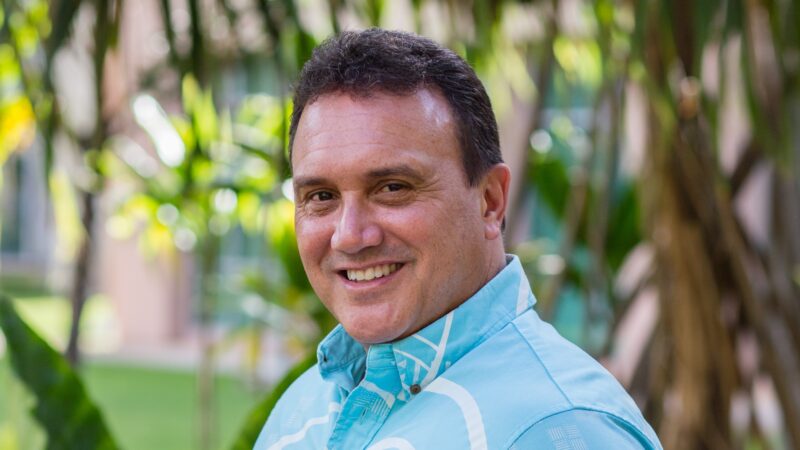
Joseph Keawe‘aimoku Kaholokula, PhD, professor and chair, department of Native Hawaiian health, John A. Burns School of Medicine, University of Hawaii at Manoa, Honolulu. For pioneering evidence-based interventions using Indigenous cultural values and practices to improve cardiovascular, diabetes, and obesity disparities for thousands of Native Hawaiians and Pacific Islanders (NH/PI). He spans science and practice, provides direction to health care systems serving NH/PI, advocates for NH/PI, and develops NH/PI scientists.
Christine Laine
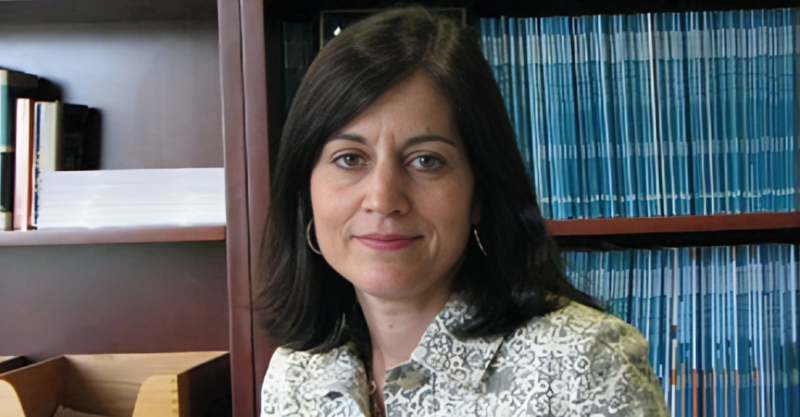
Christine Laine, MD, MPH, editor-in-chief, Annals of Internal Medicine, American College of Physicians; and professor of medicine, Sidney Kimmel Medical College, Thomas Jefferson University, Philadelphia. For expanding the influence of the Annals of Internal Medicine and the American College of Physicians by addressing issues such as firearms and gun violence, reproducible research, misinformation, reproductive health, equitable health care, and scientific misconduct.
Kenneth M. Langa
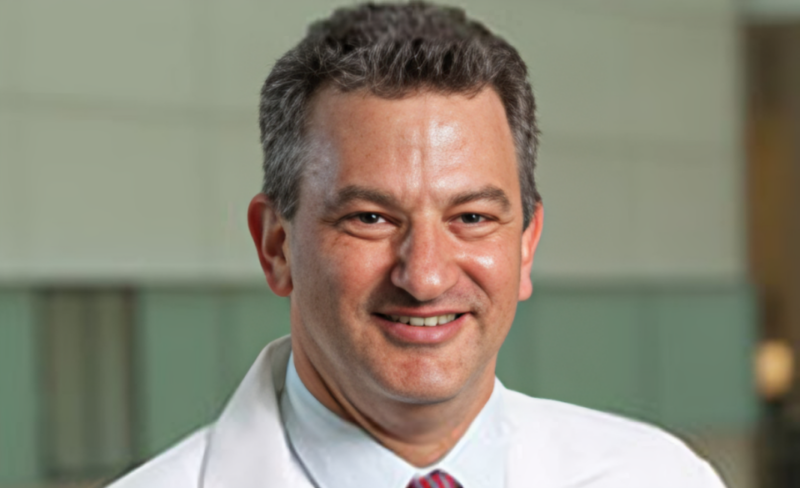
Kenneth M. Langa, MD, PhD, Cyrus Sturgis Professor of Medicine, department of internal medicine and Institute for Social Research, University of Michigan, Ann Arbor. For being a global leader in the study of aging. His research has better defined the prevalence, outcomes, and population trends of cognitive impairment and dementia in the U.S. and around the world, and has allowed identification of the myriad costs of these conditions on patients, families, governments, and societies.
Haifan Lin
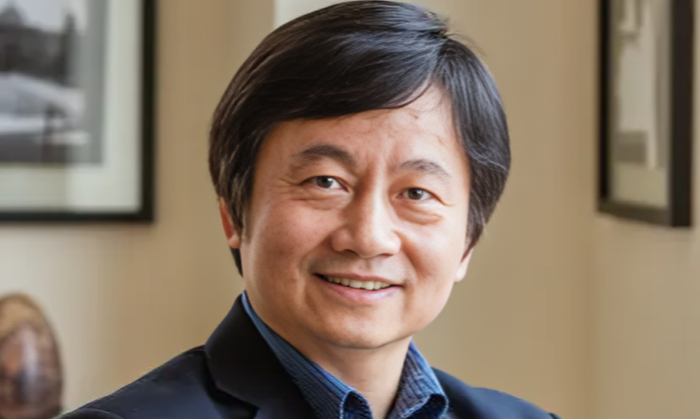
Haifan Lin, PhD, Eugene Higgins Professor of Cell Biology and professor of genetics, of dermatology, and of obstetrics, gynecology, and reproductive sciences; and director, Yale Stem Cell Center, Yale School of Medicine, New Haven, Conn. For making key contributions to the validation of two hallmark stem cell theories: asymmetric division and niche hypotheses. He discovered the only gene family (argonaute/piwi genes) known to be essential for stem cell maintenance in both animals and plants. He discovered millions of small noncoding RNAs called piRNAs and established a new paradigm of genome regulation.
Massimo Loda
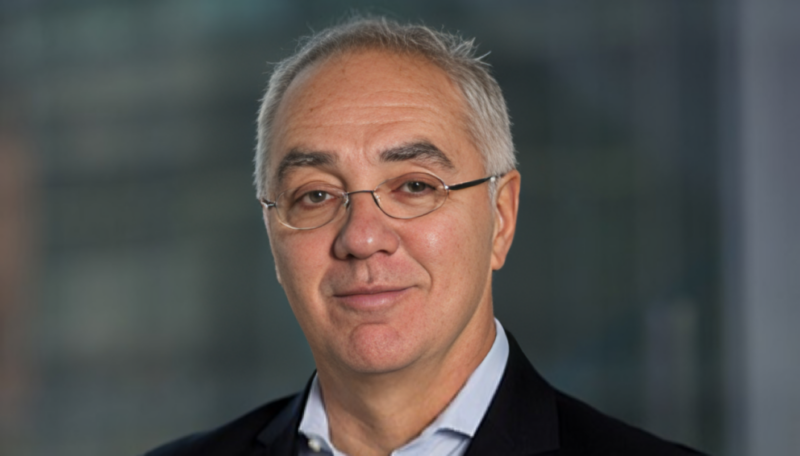
Massimo Loda, MD, David D. Thompson Professor and chair, department of pathology and laboratory medicine, Weill Cornell Medicine; professor emeritus of pathology, Harvard Medical School; and visiting professor of pathology, University of Oxford-Lincoln College, New York City. For pioneering the use of molecular assays in diagnostic pathology and establishing the concept of “metabolic oncogenes” in the development of cancer. This discovery has led to clinical trials targeting lipogenic enzymes in prostate cancer.
INTERNATIONAL MEMBERS
George Coukos
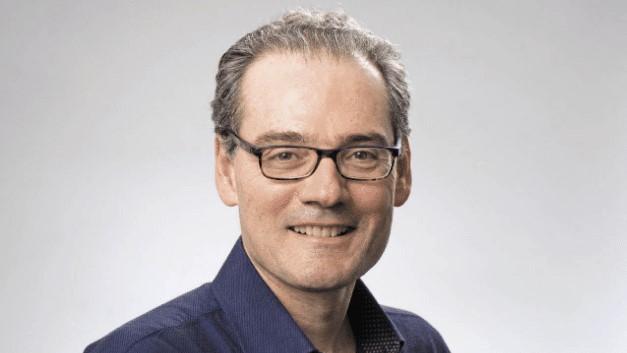
George Coukos, MD, PhD, director, oncology department, Lausanne University Hospital; and director, Ludwig Institute for Cancer Research Lausanne Branch, Lausanne, Switzerland. For discovering the correlation between T-cell infiltration and favorable prognosis in ovarian cancer, an observation later generalized to all human tumors. He also uncovered that tumor vasculature is a barrier to immunotherapy, leading to treatments with angiogenesis inhibitors and immune checkpoint blockade showing significant benefit in many tumors.
Nicholas Peter Franks
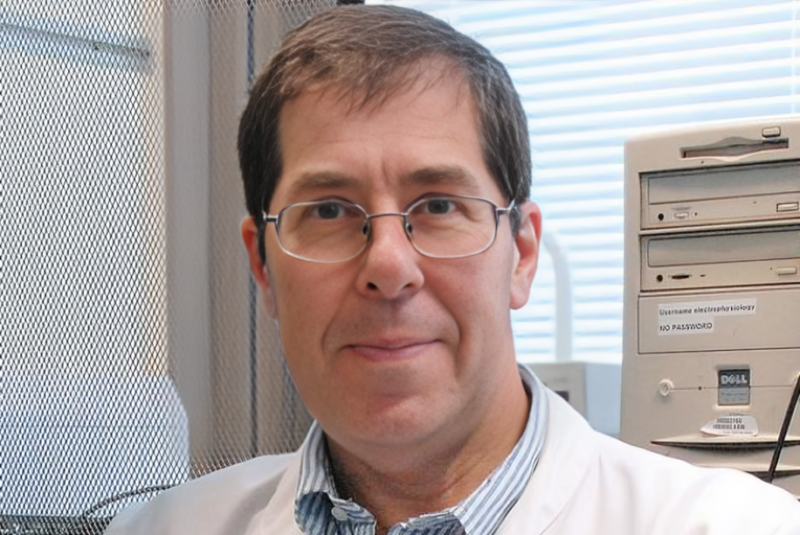
Nicholas Peter Franks, PhD, professor of biophysics and anaesthetics, department of life sciences, Imperial College London, London, United Kingdom. For revolutionary discoveries that have shaped our understanding of how anaesthetics work. He overturned the long-held assumption that anaesthetics interact nonspecifically with cell membranes, demonstrating that they act at specific binding sites on a small number of receptors.
Thumbi Ndung’u
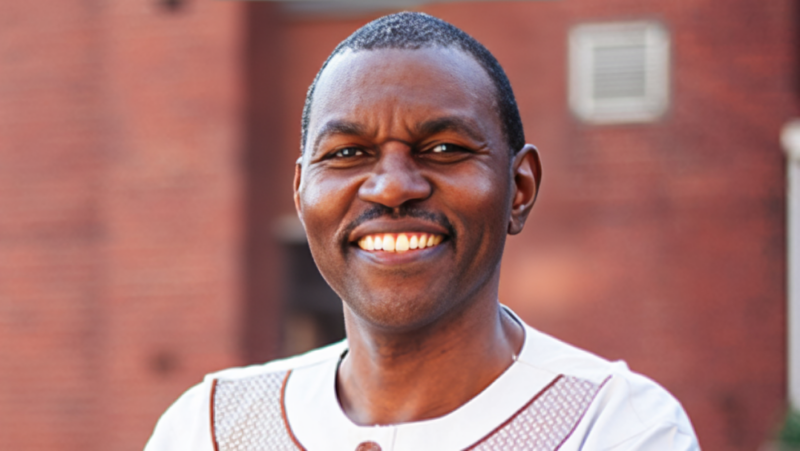
Thumbi Ndung’u, BVM, PhD, director for basic and translational science, Africa Health Research Institute; professor and Victor Daitz Chair, HIV Pathogenesis Programme, University of KwaZulu-Natal; and professor of infectious diseases, University College London, Durban, South Africa. For generating the first primary isolate infectious molecular clone of HIV-1 subtype C, enabling research on viral-host mechanisms of pathogenesis. He has identified regions of immune vulnerability in HIV-1 subtype C for candidate vaccine and immunotherapeutic development, currently leading the first HIV cure trial in Africa.
100 New Members of NAM: Part 1


